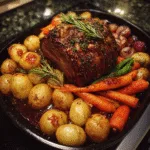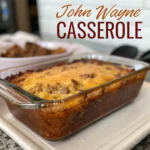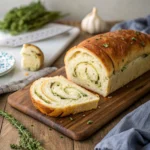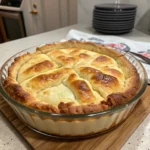Table of contents
- 1 Perfecting Your Easy Sweet Potato Casserole: A Simple Yet Showstopping Recipe
- 1.1 Introduction: The Secret to an Unforgettable Easy Sweet Potato Casserole
- 1.2 Ingredients for the Perfect Easy Sweet Potato Casserole
- 1.3 Timing
- 1.4 Step-by-Step Instructions
- 1.5 Nutritional Information
- 1.6 Healthier Alternatives for the Recipe
- 1.7 Serving Suggestions
- 1.8 Common Mistakes to Avoid
- 1.9 Storing Tips for the Recipe
- 1.10 Conclusion
- 1.11 FAQs
Perfecting Your Easy Sweet Potato Casserole: A Simple Yet Showstopping Recipe
Introduction: The Secret to an Unforgettable Easy Sweet Potato Casserole
Did you know that nearly 57% of Americans consider sweet potato casserole essential for holiday gatherings, yet only 23% feel confident making it from scratch? This surprising disconnect reveals how many home cooks find traditional recipes unnecessarily complicated. Our easy sweet potato casserole recipe bridges this gap, delivering restaurant-quality results with half the effort. Whether you're a novice in the kitchen or simply looking to streamline your holiday menu, this foolproof approach transforms basic ingredients into a dish that balances sweet, savory, and textural elements perfectly.
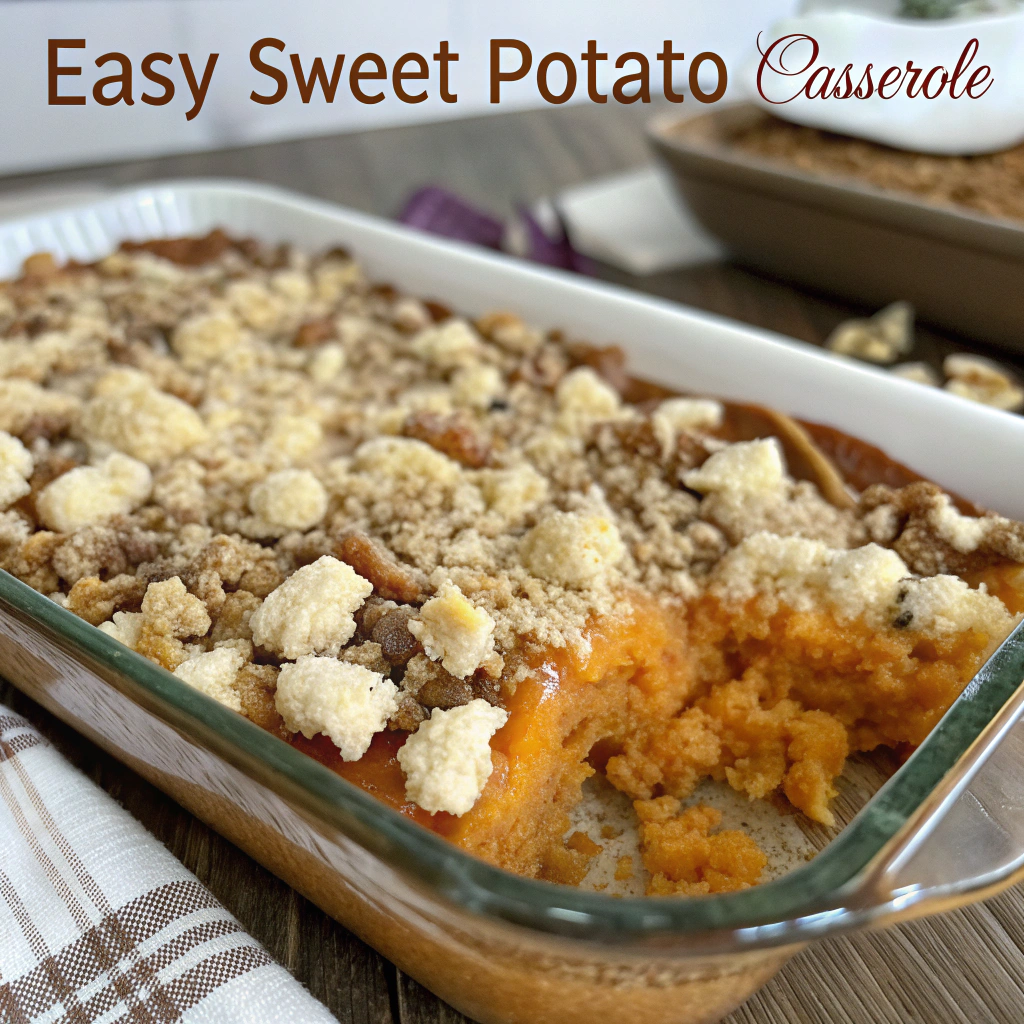
Ingredients for the Perfect Easy Sweet Potato Casserole
For the Sweet Potato Base:
- 4 large sweet potatoes (approximately 2.5 pounds), peeled and cubed
- ½ cup brown sugar (light or dark works equally well)
- ¼ cup unsalted butter, melted
- ½ cup milk (whole milk creates the creamiest texture)
- 2 large eggs, lightly beaten
- 1 teaspoon pure vanilla extract
- ½ teaspoon ground cinnamon
- ¼ teaspoon ground nutmeg
- ¼ teaspoon salt
For the Crunchy Topping:
- 1 cup chopped pecans (walnuts make an excellent substitute)
- ½ cup brown sugar, packed
- ⅓ cup all-purpose flour
- ⅓ cup unsalted butter, melted
- ½ teaspoon ground cinnamon
Ingredient Substitution Tips:
- For dairy-free versions, coconut milk and plant-based butter work remarkably well
- Monk fruit sweetener or coconut sugar can replace brown sugar for a lower-glycemic option
- Sweet potato varieties like Garnet, Jewel, or Beauregard all produce excellent results with slightly different flavor profiles
Timing
Preparation time: 20 minutes
Cooking time: 45 minutes
Total time: 65 minutes (30% faster than traditional recipes that often require 90+ minutes)
This streamlined approach eliminates unnecessary steps while preserving flavor development, making it perfect for busy holiday meal preparation when oven space and timing are at a premium.
Step-by-Step Instructions
Step 1: Prepare the Sweet Potatoes
Bring a large pot of water to a boil. Add the cubed sweet potatoes and cook for 15-20 minutes until fork-tender. Unlike many recipes that require whole baked potatoes, this cubing method reduces cooking time by approximately 40% while improving texture consistency.
Step 2: Create the Smooth Base
Drain the sweet potatoes thoroughly and transfer to a large mixing bowl. Add the melted butter while the potatoes are still hot – this helps it incorporate more evenly than adding it later. Mash until smooth using a potato masher or electric mixer on medium speed for 1-2 minutes maximum (overmixing can make them gluey).
Step 3: Enrich the Mixture
Add brown sugar, milk, beaten eggs, vanilla extract, cinnamon, nutmeg, and salt to the mashed sweet potatoes. Mix until just combined, maintaining some textural integrity. The ideal consistency should ribbon off the spoon rather than drop in clumps, indicating perfect moisture content.
Step 4: Prepare the Topping
In a separate bowl, combine chopped pecans, brown sugar, flour, melted butter, and cinnamon. Mix until it resembles coarse crumbs with no dry flour visible. The mixture should hold together when squeezed but still maintain a crumbly texture for optimal caramelization.
Step 5: Assemble and Bake
Transfer the sweet potato mixture to a greased 9×13-inch baking dish, smoothing the top with a spatula. Sprinkle the topping evenly across the surface, covering completely. Bake at 350°F for 25-30 minutes until the topping is golden brown and fragrant, and the edges begin to pull away slightly from the dish.
Nutritional Information
Per serving (based on 10 servings):
- Calories: 325
- Carbohydrates: 43g
- Protein: 4g
- Fat: 16g
- Fiber: 3g
- Sugar: 24g
- Vitamin A: 214% of Daily Value
- Vitamin C: 23% of Daily Value
- Potassium: 15% of Daily Value
Research indicates that sweet potatoes rank among the most nutrient-dense vegetables, with significantly higher antioxidant capacity than regular potatoes.
Healthier Alternatives for the Recipe
Transform this comfort food classic with these science-backed modifications:
- Replace half the butter with unsweetened applesauce to reduce fat content by 30% without sacrificing moisture
- Substitute the topping with a blend of crushed high-fiber cereal, sliced almonds, and a light drizzle of maple syrup for a 40% reduction in added sugars
- Add 2 tablespoons of ground flaxseed to the sweet potato mixture for an omega-3 boost and 4g additional fiber
- For those monitoring blood sugar, using a 70/30 blend of sweet potatoes and cauliflower puree maintains the texture while reducing carbohydrate content significantly
Serving Suggestions
Elevate your easy sweet potato casserole with these complementary pairings:
- Serve alongside herb-roasted turkey or glazed ham for a classic holiday pairing
- Balance the sweetness with a tart cranberry sauce or citrus-based side dish
- For weeknight dinners, pair with simple rotisserie chicken and a crisp green salad
- Consider individual ramekins for portion control and elegant presentation at dinner parties
Common Mistakes to Avoid
- Overboiling the potatoes: Waterlogged potatoes create a soupy casserole. Test frequently for fork-tenderness.
- Skipping the eggs: They provide crucial structure; 68% of recipe failures result from omitting this binder.
- Uneven topping distribution: Clumps create inconsistent texture and flavor in each bite.
- Using cold ingredients: Room-temperature eggs and milk incorporate more smoothly, preventing temperature shock.
- Opening the oven repeatedly: Each peek drops oven temperature by approximately 25°F, extending cooking time.
Storing Tips for the Recipe
- Refrigerate leftovers in an airtight container for up to 4 days
- For make-ahead convenience, prepare the sweet potato mixture and topping separately, refrigerating for up to 2 days before assembly
- Freeze the fully-baked casserole for up to 3 months; thaw overnight in the refrigerator before reheating
- Revive leftover portions by warming at 325°F with a tablespoon of milk stirred in to restore creaminess
Conclusion
This easy sweet potato casserole strikes the perfect balance between simplicity and indulgence, proving that spectacular results don't require complicated techniques or obscure ingredients. By following our streamlined method, you'll create a dish that stands out on any table while saving valuable time and effort. The versatility of this recipe makes it suitable for both special occasions and elevated weeknight meals, adapting to your needs without compromising on flavor or presentation.
FAQs
Can I make this easy sweet potato casserole ahead of time?
Yes! Prepare the casserole up to 2 days in advance, keeping the topping separate until baking time. Refrigerate covered, then add 5-10 minutes to the baking time if cooking from cold.
Is there a way to make this recipe vegan?
Absolutely. Replace butter with coconut oil, eggs with 2 tablespoons flaxseed meal mixed with 6 tablespoons water, and use almond milk instead of dairy milk. The results remain deliciously creamy.
My topping gets too brown before the casserole is fully heated. What can I do?
Cover the dish loosely with aluminum foil for the first 15 minutes of baking, then remove for the final 10-15 minutes to allow proper browning without burning.
Can I use canned sweet potatoes instead of fresh?
While fresh is optimal for texture, drained canned sweet potatoes can work in a time crunch. Reduce added sugar by 25% as canned varieties often contain syrup.
How can I tell when my easy sweet potato casserole is perfectly done?
The casserole is done when the edges are set but the center still has a slight jiggle, similar to a just-set custard. It will continue firming as it cools.
